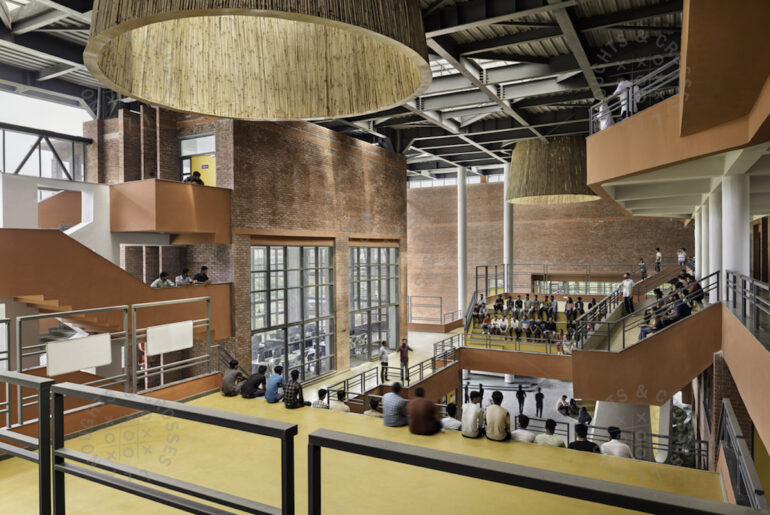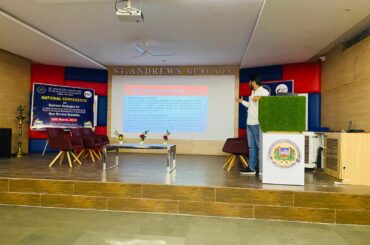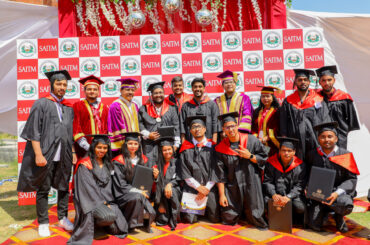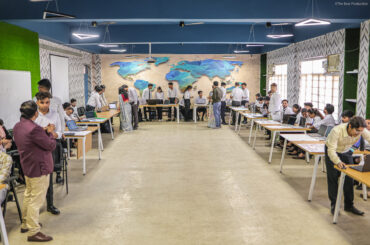B Tech Courses List
B.Tech (Bachelor of Technology) is a popular undergraduate program in engineering and technology, offering a variety of specializations. Within our B Tech Courses List, you can explore and find the perfect fit for your interests and career aspirations.
The courses typically span four years and are designed to provide students with a strong foundation in theoretical and practical aspects of engineering.
Popular specializations in the field include Computer Science and Engineering, Mechanical Engineering, Electrical Engineering, Civil Engineering, Electronics and Communication Engineering, and Information Technology. Within our B Tech Courses List, you’ll also find Chemical Engineering, Aerospace Engineering, and Biotechnology among the diverse options available.
Each specialization focuses on specific areas of technology and engineering, equipping students with the necessary skills to excel in their chosen fields.
The curriculum usually includes core courses, elective courses, laboratory work, internships, and project-based learning. Within our B Tech Courses List, you’ll find that these elements ensure a comprehensive educational experience that prepares students for the dynamic demands of the engineering industry.
Some of the most opted courses in India and St. Andrews college or different Engineering college or Management colleges are as follows:-
- Btech
- Btech CSE
- Btech ETCE
- MTech
- BCA
- BBA
- MBA
- MCA
- DPharma – St. Andrews College of Pharmacy
- BPharma – St. Andrews College of Pharmacy
- BArch – St. Andrews College of Architecture
BTech Course Duration
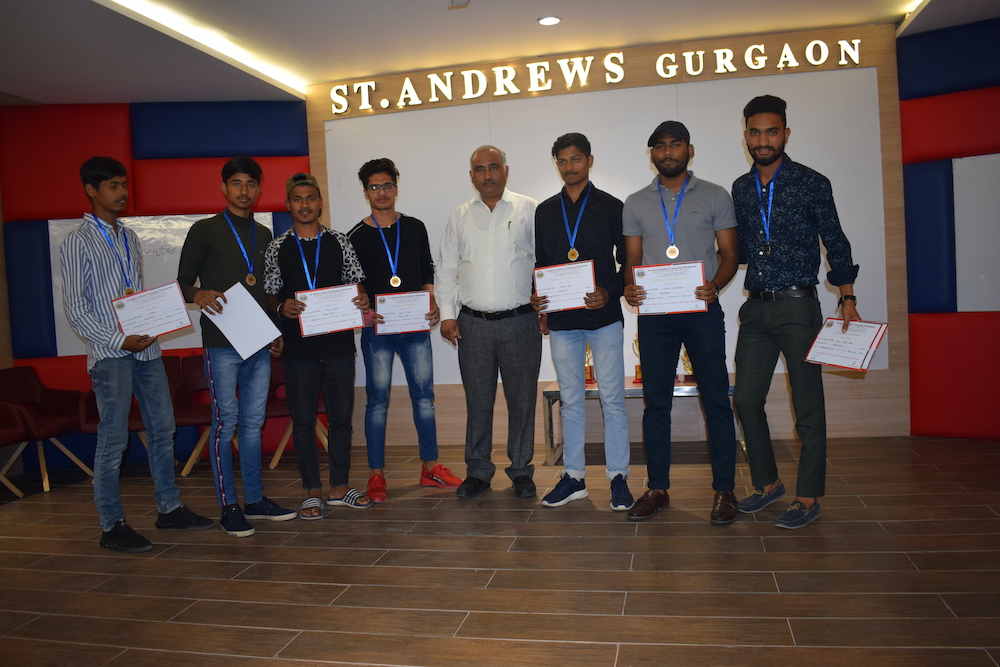
The duration of a B.Tech (Bachelor of Technology) course is typically four.
These four years are divided into eight semesters, with each semester lasting approximately six months.
During this period, students engage in a comprehensive engineering education that includes core engineering subjects, elective courses, laboratory work, and hands-on projects. Within our B Tech Courses List, the program also often incorporates internships and industry training to provide practical experience.
The first year generally covers foundational courses in mathematics, physics, chemistry, and basic engineering principles, while the subsequent years focus more on specialized subjects related to the chosen engineering discipline.
The final year usually involves a major project or thesis that allows students to apply their acquired knowledge to real-world problems. Within our B Tech Courses List, you’ll find that these projects are designed to integrate and showcase the skills learned throughout the program.
B Tech Courses in India
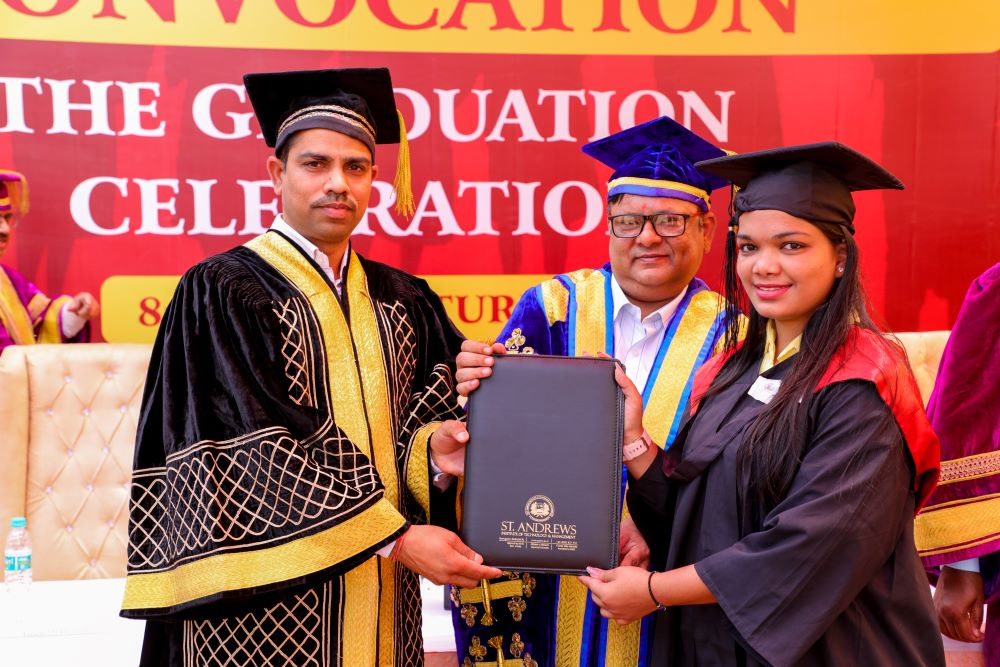
Here are some of the top B.Tech courses in India along with a brief overview of each:
1. Computer Science and Engineering (CSE)
Overview: Focuses on computer programming, software development, algorithms, computer networks, and data structures.
Career Options: Software developer, system analyst, data scientist, Artificial Intelligence/ML engineer, cybersecurity expert.
2. Electronics and Communication Engineering (ECE)
Overview: Deals with electronic devices, circuits, communication equipment like transmitter, receiver, integrated circuits (IC).
Career Options: Electronics engineer, communication engineer, embedded systems engineer, network planning engineer.
3. Mechanical Engineering
Overview: Involves the design, analysis, manufacturing, and maintenance of mechanical systems.
Career Options: Mechanical engineer, automotive engineer, aerospace engineer, manufacturing engineer.
4. Electrical Engineering
Overview: Focuses on the study of electricity, electromagnetism, and electronics.
Career Options: Electrical engineer, power engineer, electronics engineer, control systems engineer.
5. Civil Engineering
Overview: Involves the design, construction, and maintenance of infrastructure such as roads, bridges, buildings, and dams.
Career Paths: Civil engineer, structural engineer, construction manager, urban planner.
6. Information Technology (IT)
Overview: Emphasizes computer-based information systems, software applications, and IT management.
Career Paths: IT consultant, systems analyst, network engineer, database administrator.
7. Chemical Engineering
Overview: Combines physical sciences (physics and chemistry) and life sciences (biology, microbiology, and biochemistry) with applied mathematics and economics to produce, transform, transport, and properly use chemicals, materials, and energy.
Career Paths: Chemical engineer, process engineer, production engineer, quality control engineer.
8. Biotechnology Engineering
Overview: Applies principles of biology and engineering to create products and technologies that improve the quality of life.
Career Paths: Biotechnologist, research scientist, bioinformatics specialist, genetic engineer.
9. Aerospace Engineering
Overview: Involves the design, development, and testing of aircraft, spacecraft, and related systems and equipment.
Career Prospects: Aerospace engineer, avionics engineer, propulsion engineer, flight test engineer.
10. Automobile Engineering
Overview: Focuses on designing, manufacturing, and operating automobiles and their respective subsystems.
Career Prospects: Automobile engineer, design engineer, production engineer, quality control manager.
11. Agricultural Engineering
Overview: Applies engineering principles to agricultural processes and production.
Career Prospects: Agricultural engineer, irrigation engineer, farm equipment engineer, soil and water conservationist.
12. Petroleum Engineering
Overview: Focuses on the extraction of oil and gas from beneath the earth’s surface.
Career Prospects: Petroleum engineer, drilling engineer, reservoir engineer, production engineer.
13. Environmental Engineering
Overview: Involves the application of engineering principles to improve and maintain the environment for the protection of human health, at the same time improving the quality of human life.
Career Prospects: Environmental engineer, water resource engineer, waste management engineer, air quality engineer.
14. Mining Engineering
Overview: Involves the extraction of minerals from the earth in a safe, economical, and environmentally responsible manner.
Career Prospects: Mining engineer, geological engineer, mine safety engineer, mineral processing engineer.
15. Robotics Engineering
Overview: Combines power engineering, mechanical engineering, and application development to design and create robotic systems.
Career Prospects: Robotics engineer, automation engineer, AI specialist, robotics software developer.
BTech Courses Eligibility Criteria

The eligibility criteria for a Bachelor of Technology (B.Tech) program generally include the following requirements:
Educational Qualification
- 10+2 Examination: Candidates must have completed their 10+2 or equivalent examination from a recognized board.
- Subjects: The mandatory subjects should include Physics, Mathematics and Chemistry.
Minimum Marks
- Percentage Requirement: Candidates are typically required to have secured a minimum percentage in their 10+2 examination, usually around 50-60%, though this can vary by institution and category (general, SC/ST, OBC).
Entrance Examinations
- National Level Exams: Candidates must qualify in national level engineering entrance exams such as JEE Main and JEE Advanced for admission to IITs, NITs, and other centrally funded institutions.
- State Level Exams: Many states conduct their own entrance exams, such as MHT CET (Maharashtra), WBJEE (West Bengal), and KCET (Karnataka).
- Institutional Exams: Some private and deemed universities have their own entrance exams, like VITEEE (VIT University) and BITSAT (BITS Pilani).
Age Limit
- There might be an age limit, usually between 17 and 25 years at the time of admission, though this can vary depending on the institution.
Other Requirements
- Domicile: Some state-level institutions may have domicile requirements, where a certain percentage of seats are reserved for candidates from the state.
- Physical Fitness: Candidates may need to meet certain physical fitness standards as required by the institution.
BTech Admission Process
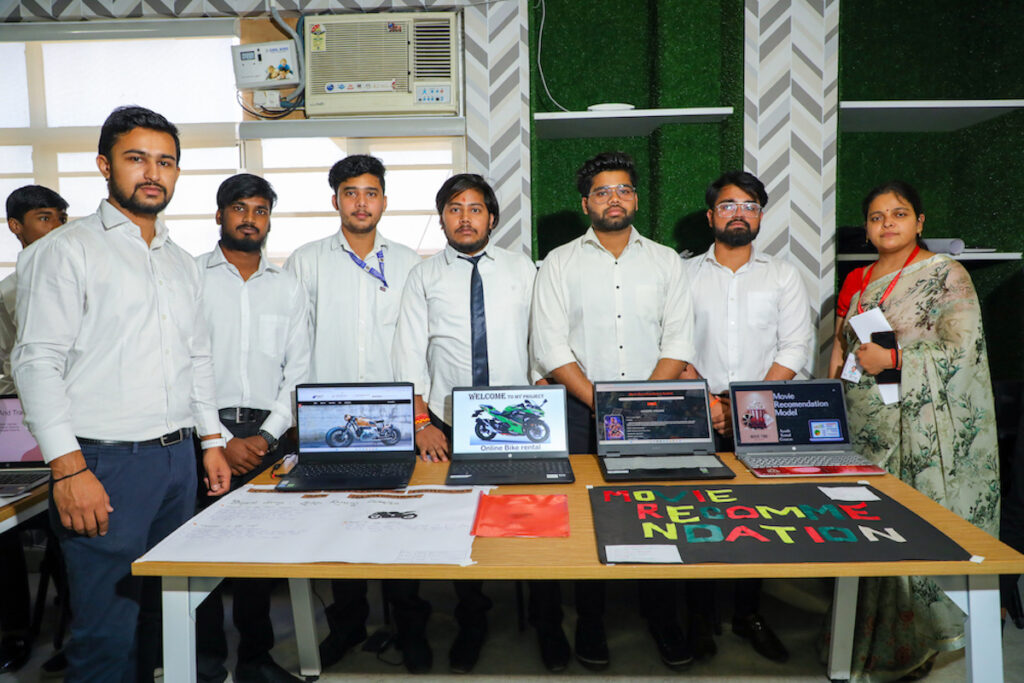
Here is a general overview of the B Tech admissions process:
Qualifying Exam
Completion of 10+2: Candidates must have completed their 10+2 or equivalent examination from a recognized board with Physics, Mathematics and Chemistry as core subjects.
Entrance Examinations:
National Level Exams
- JEE Main: Conducted by the National Testing Agency (NTA), JEE Main is the primary exam for admission to NITs, IIITs, and other centrally funded technical institutions. It also serves as a qualifying exam for JEE Advanced.
- JEE Advanced: Conducted by one of the IITs on a rotational basis, JEE Advanced is required for admission to the Indian Institutes of Technology (IITs).
State Level Exams: Various states conduct their own entrance examinations, such as MHT CET (Maharashtra), WBJEE (West Bengal), and KCET (Karnataka).
Institutional Exams: Some universities have their own entrance exams, like VITEEE (VIT University) and BITSAT (BITS Pilani).
Application Process
Registration: Candidates must register for the respective entrance exams by filling out the online application forms and paying the required fees.
- Submission of Documents: Relevant documents such as mark sheets, identity proof, and photographs need to be uploaded during the application process.
Examination and Results
Entrance Test: Candidates must appear for the entrance exams on the scheduled dates.
Results and Ranking: Based on the performance in the entrance exams, candidates are awarded ranks or scores.
Counseling and Seat Allocation
Counseling Process: Qualified candidates are called for counseling sessions where they can choose their preferred colleges and courses based on their entrance exam scores.
Seat Allocation: Seats are allocated based on the candidate’s rank, preferences, and availability of seats. Counseling can be conducted in multiple rounds.
Admission Confirmation
Provisional Admission: Once a seat is allocated, candidates must confirm their acceptance by paying the provisional admission fee and submitting the necessary documents for verification.
Final Admission: After document verification and payment of the required fees, candidates are granted final admission into the B.Tech program.
Reporting to College
Candidates must report to the allocated college on the specified date to complete the admission formalities and start their academic session.
Btech Entrance Exams
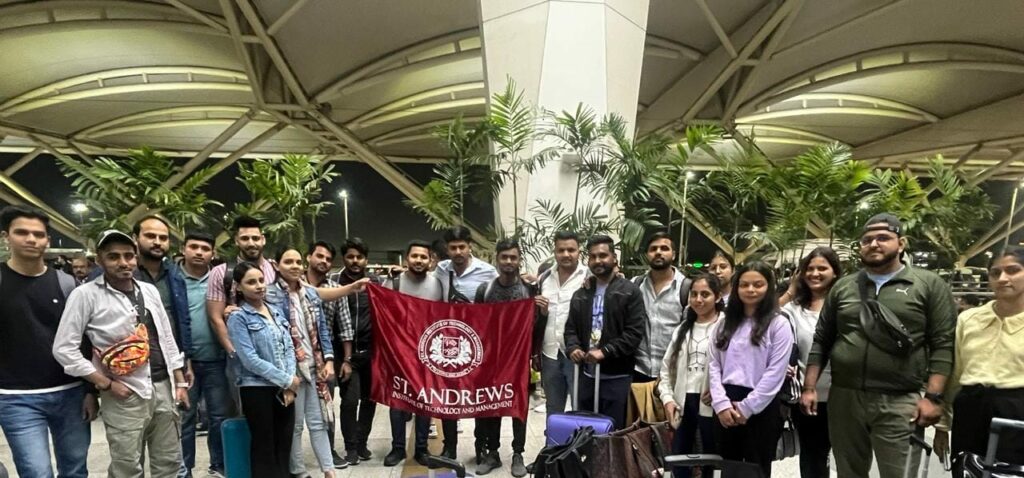
Here are some of the most prominent ones:
National-Level Entrance Exams
JEE Main (Joint Entrance Examination Main)
- Conducted by: National Testing Agency (NTA)
- Purpose: Admission to NITs, IIITs, and other centrally funded technical institutions.
- Eligibility: 10+2 with Physics, Chemistry, and Mathematics.
- Exam Pattern: Two papers – Paper 1 (for B.Tech) and Paper 2 (for B.Arch/B.Planning).
JEE Advanced
- Conducted by: One of the IITs on a rotational basis.
- Purpose: Admission to the Indian Institutes of Technology (IITs).
- Eligibility: Top candidates from JEE Main.
- Exam Pattern: Two papers, both mandatory.
BITSAT (Birla Institute of Technology and Science Admission Test)
- Conducted by: BITS Pilani.
- Purpose: Admission to BITS Pilani and its other campuses.
- Eligibility: 10+2 with Physics, Chemistry, and Mathematics, and a minimum aggregate percentage as specified.
- Exam Pattern: Online test with sections on Physics, Chemistry, Mathematics, English, and Logical Reasoning.
VITEEE (VIT Engineering Entrance Examination)
- Conducted by: VIT University.
- Purpose: Admission to VIT Vellore and other VIT campuses.
- Eligibility: 10+2 with PCM/B and a minimum aggregate percentage as specified.
- Exam Pattern: Online test with sections on Physics, Chemistry, Mathematics/Biology, English, and Aptitude.
State-Level Entrance Exams
MHT CET (Maharashtra Common Entrance Test)
- Conducted by: State Common Entrance Test Cell, Maharashtra.
- Purpose: Admission to engineering colleges in Maharashtra.
- Eligibility: 10+2 with PCM.
- Exam Pattern: Multiple-choice questions in Physics, Chemistry, and Mathematics.
WBJEE (West Bengal Joint Entrance Examination)
- Conducted by: West Bengal Joint Entrance Examinations Board.
- Purpose: Admission to engineering colleges in West Bengal.
- Eligibility: 10+2 with PCM.
- Exam Pattern: Multiple-choice questions in Physics, Chemistry, and Mathematics.
KCET (Karnataka Common Entrance Test)
- Conducted by: Karnataka Examinations Authority (KEA).
- Purpose: Admission to top engineering colleges in Karnataka.
- Eligibility: 10+2 with PCM.
- Exam Pattern: Multiple-choice questions in Physics, Chemistry, and Mathematics.
AP EAMCET (Andhra Pradesh Engineering, Agriculture, and Medical Common Entrance Test)
- Conducted by: Jawaharlal Nehru Technological University (JNTU) Kakinada.
- Purpose: Admission to engineering colleges in Andhra Pradesh.
- Eligibility: 10+2 with PCM.
- Exam Pattern: Multiple-choice questions in Physics, Chemistry, and Mathematics.
Institutional-Level Entrance Exams
SASTRA Engineering Entrance Examination (SEEE):
- Conducted by: SEEE Academy of Higher Education.
- Purpose: Admission to SEEE University.
- Eligibility: 10+2 with PCM.
- Exam Pattern: Online test with sections on Physics, Chemistry, Mathematics, English, and Aptitude.
KIITEE (Kalinga Institute of Industrial Technology Entrance Exam)
- Conducted by: Kalinga Institute of Industrial Technology.
- Purpose: Admission to KIIT University.
- Eligibility: 10+2 with PCM.
- Exam Pattern: Online test with sections on Physics, Chemistry, and Mathematics.
BTech Specializations
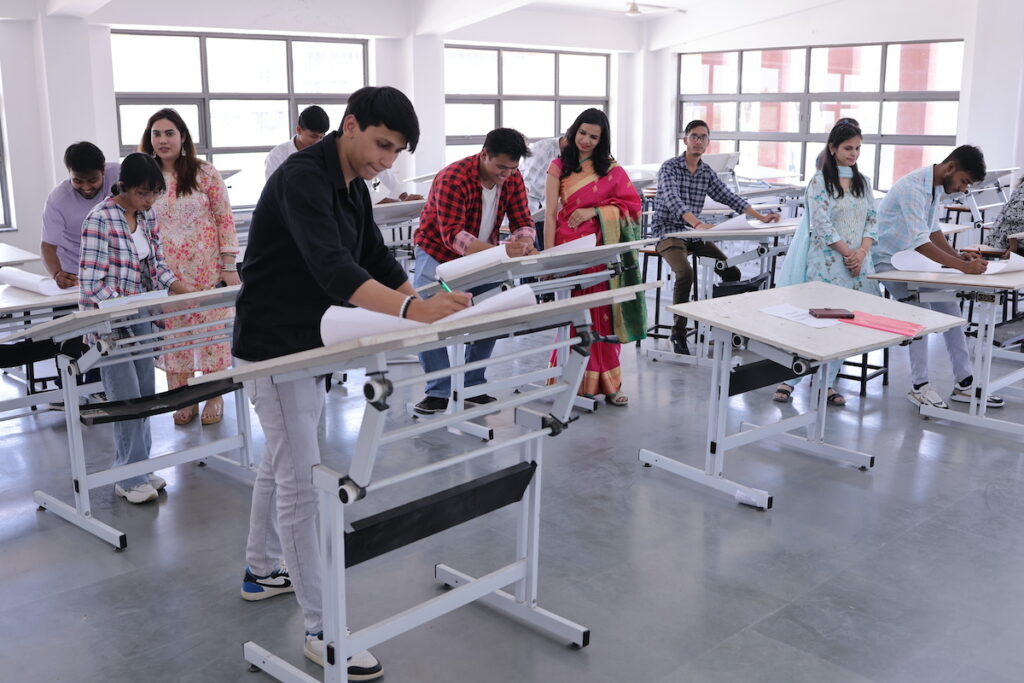
Here are some of the top BTech Programme Specializations:
Computer Science and Engineering (CSE)
Mechanical Engineering
Electrical Engineering
Electronics and Communication Engineering
Civil Engineering
Information Technology
Aeronautical Engineering
Biomedical Engineering
Automobile Engineering
Industrial Engineering
Environmental Engineering
Petroleum Engineering
Biotechnology
Top Government BTech Colleges
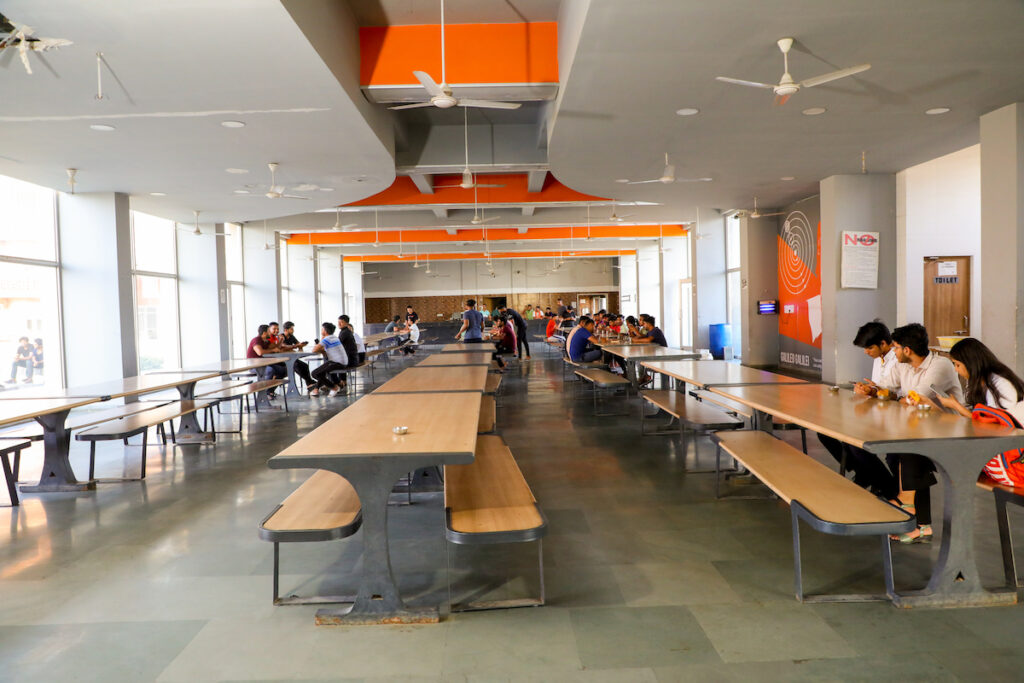
Here are some of the top government BTech colleges in India:
Delhi Technological University (DTU), Delhi
Highlights: Formerly known as Delhi College of Engineering (DCE), DTU is one of the premier engineering institutions in India. It is known for its strong academic programs, excellent faculty, and vibrant campus life.
Programs: Offers BTech programs in Mechanical Engineering, Power Engineering, Application Development, Civil Engineering, and more.
Research & Innovation: DTU has several research centers and promotes innovation through its incubation center.
Placements: High placement rates with top recruiters such as Google, McKinsey, Microsoft, and Siemens visiting the campus.
St. Andrews Institute of Technology and Management (SAITM), Gurgaon
Highlights: SAITM is known for its quality education, strong faculty, and robust placement opportunities.
Programs: Offers BTech program and MTech program.
Research & Innovation: Emphasizes research with several ongoing projects and collaborations with industry.
Placements: Attracts top employers like Amazon, Accenture, Samsung, and Google with excellent placement records.
Indian Institute of Engineering Science and Technology (IIEST), Shibpur
Highlights: One of the oldest engineering colleges in India, IIEST Shibpur is known for its academic rigor and research excellence.
Programs: Offers BTech programs in Civil Engineering, Electrical Engineering, Mechanical Engineering, and more.
Research & Innovation: Strong focus on interdisciplinary research with several specialized centers and laboratories.
Placements: Good placement opportunities with companies like L&T, Tata Consultancy Services, Cognizant, and other major firms.
College of Engineering, Pune (COEP)
Highlights: Established in 1854, COEP is one of the oldest engineering colleges in India and is known for its rich history, academic excellence, and strong alumni network.
Programs: Offers BTech programs in Civil Engineering, Computer Engineering, Mechanical Engineering, and more.
Research & Innovation: Promotes research and innovation through various initiatives and collaborations.
Placements: Strong placement records with top recruiters like Google, Infosys, Tata Motors, and Bajaj.
Jadavpur University, Kolkata
Highlights: A premier university known for its strong engineering programs, Jadavpur University has a significant focus on research and development.
Programs: Offers BTech programs in Electrical Engineering, Mechanical Engineering, Application Development, Chemical Engineering, and more.
Research & Innovation: Emphasizes research with several research centers and projects funded by national and international agencies.
Placements: Excellent placement records with companies like Microsoft, Tata Steel, PwC, and others.
Jamia Millia Islamia, Delhi
Highlights: A central university known for its quality engineering programs, Jamia Millia Islamia has a strong emphasis on research and innovation.
Programs: Offers BTech programs in Civil Engineering, Computer Engineering, Electrical Engineering, Mechanical Engineering, and more.
Research & Innovation: Focuses on interdisciplinary research with several centers of excellence.
Placements: Good placement opportunities with companies such as Wipro, HCL, TCS, and other major recruiters.
Punjab Engineering College (PEC), Chandigarh
Highlights: Known for its quality education and strong research culture, PEC is one of the oldest engineering colleges in India.
Programs: Offers BTech programs in Aerospace Engineering, Computer Engineering, Electrical Engineering, Civil Engineering, and more.
Research & Innovation: Strong focus on research with various funded projects and collaborations.
Placements: Strong placement records with companies like Microsoft, IBM, Maruti Suzuki, and other top firms.
Indian Institute of Space Science and Technology (IIST), Thiruvananthapuram
Highlights: IIST is dedicated to the study and research of space science and technology, providing specialized education in this field.
Programs: Offers BTech programs in Aerospace Engineering, Avionics, and Physical Sciences.
Research & Innovation: Close collaboration with ISRO, focusing on cutting-edge research in space technology.
Placements: Strong placement opportunities with organizations like ISRO, DRDO, and HAL, providing a pathway to a career in space research and technology.
Visvesvaraya National Institute of Technology (VNIT), Nagpur
Highlights: Formerly known as VRCE, VNIT is known for its strong academic programs and research facilities.
Programs: Offers BTech (Bachelor of Technology) programs in Civil Engineering, Computer Science and Engineering, Electrical and Electronic Engineering, and more.
Research & Innovation: Promotes interdisciplinary research with several ongoing projects and collaborations.
Placements: Good placement records with companies like L&T, Tata Consultancy Services, and Infosys.
Andhra University College of Engineering, Visakhapatnam
Highlights: One of the oldest engineering colleges in India, known for its academic excellence and research contributions.
Programs: Offers BTech programs in Civil Engineering, Mechanical Engineering, Electrical Engineering, and more.
Research & Innovation: Focuses on various research initiatives and projects funded by national agencies.
Placements: Strong placement records with companies such as TCS, Wipro, and Infosys.
Osmania University College of Engineering, Hyderabad
Highlights: Known for its strong academic programs and historic legacy, Osmania University College of Engineering offers quality education and research opportunities.
Programs: Offers BTech programs in Structural Engineering, Computer Science, Electrical and Electronics Engineering, and more.
Research & Innovation: Emphasizes research and development with several specialized centers.
Placements: Good placement records with companies like Infosys, Tech Mahindra, and Wipro.
Top Private BTech Colleges
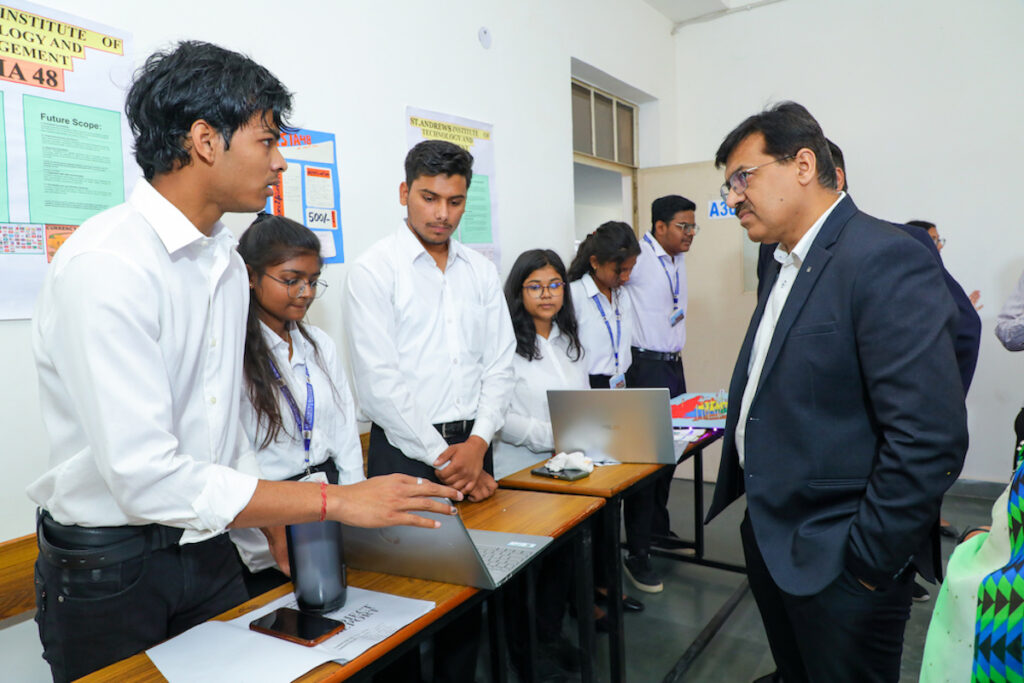
Here’s an in-depth look at some of the top private BTech colleges in India:
Birla Institute of Technology and Science (BITS), Pilani
Location: Pilani, Rajasthan (also campuses in Goa, Hyderabad, and Dubai)
Highlights: BITS Pilani is one of India’s most renowned private engineering institutions, known for its high academic standards, excellent faculty, and innovative curriculum.
Programs: Offers BTech programs in Computer Science, Electrical and Electronics Engineering, Mechanical Engineering, and more.
Research & Innovation: Strong emphasis on research and development with multiple research centers and collaboration with industries.
Placements: High placement rates with top recruiters like Google, Microsoft, Amazon, and Qualcomm.
St. Andrews Institute of Technology and Management (SAITM), Gurgaon
Location: Gurgaon, Delhi, NCR
Highlights: SAITM is known for its world-class infrastructure, strong industry connections, and robust placement records.
Programs: Offers Bachelor of Technology (B.Tech) course and Masters of Technology (MTech) course.
Research & Innovation: Focuses on cutting-edge research with several specialized research centers.
Placements: Consistently high placement rates with companies like TCS, Wipro, Cognizant, and Infosys.
Hindustan Institute of Technology and Science
Location: Chennai, Tamil Nadu (also campuses in Delhi-NCR, Sonipat, and Amaravati)
Highlights: Hindustan Institute of Technology and Science is well-known for its diverse academic programs, modern facilities, and excellent placement opportunities.
Programs: Offers BTech programs in Public Works Engineering, Computer Science, Electrical Engineering, Mechanical Engineering, and more.
Research & Innovation: Encourages research and innovation through various initiatives and collaborations with industries.
Placements: High placement rates with recruiters such as Amazon, Microsoft, Google, and Infosys.
SASTRA Engineering Entrance Examination (SEEE)
Location: Thanjavur, Tamil Nadu
Highlights: MIT is one of India’s leading private engineering colleges, known for its quality education, modern infrastructure, and strong placement records.
Programs: Offers BTech programs in disciplines like Computer Science, Mechanical Engineering, Electronics and Communication, and more.
Research & Innovation: Focuses on research with multiple research centers and collaborations with industries.
Placements: Excellent placement records with companies like Microsoft, Cisco, Dell, and Wipro.
Thapar Institute of Engineering and Technology, Patiala
Location: Patiala, Punjab
Highlights: Thapar Institute is known for its academic excellence, research contributions, and strong industry linkages.
Programs: Offers BTech programs in Chemical Engineering, Public Works Engineering, Computer Engineering, Electrical Engineering, and more.
Research & Innovation: Emphasizes research and innovation with several specialized research centers.
Placements: High placement rates with top recruiters such as Deloitte, IBM, TCS, and Infosys.
PSG College of Technology, Coimbatore
Location: Coimbatore, Tamil Nadu
Highlights: PSG College of Technology is one of the oldest and most reputed private engineering colleges in India, known for its strong academic programs and research facilities.
Programs: Offers BTech programs in Public Works Engineering, Computer Science, Electrical and Electronics Engineering, Mechanical Systems Engineering, and more.
Research & Innovation: Emphasizes research with several funded projects and collaborations.
Placements: Excellent placement records with companies like Google, Amazon, TCS, and Cognizant.
RV College of Engineering (RVCE), Bangalore
Location: Bangalore, Karnataka
Highlights: RVCE is one of the top private engineering colleges in Karnataka, known for its quality education, strong faculty, and excellent placement records.
Programs: Offers BTech programs in Computer Science, Electrical and Electronics Engineering, Mechanical Systems Engineering, and more.
Research & Innovation: Focuses on research and innovation with multiple research centers and industry partnerships.
Placements: High placement rates with top recruiters such as Google, Microsoft, IBM, and Infosys.
SASTRA University, Thanjavur
Location: Thanjavur, Tamil Nadu
Highlights: Known for its high academic standards, excellent faculty, and strong industry connections.
Programs: Offers BTech programs in Public Works Engineering, Computer Science, Electrical and Electronics Engineering, Thermal Engineering, and more.
Research & Innovation: Focuses on cutting-edge research with several specialized research centers.
Placements: High placement rates with companies like TCS, Wipro, Cognizant, and Infosys.
Careers Opportunities after BTech Course
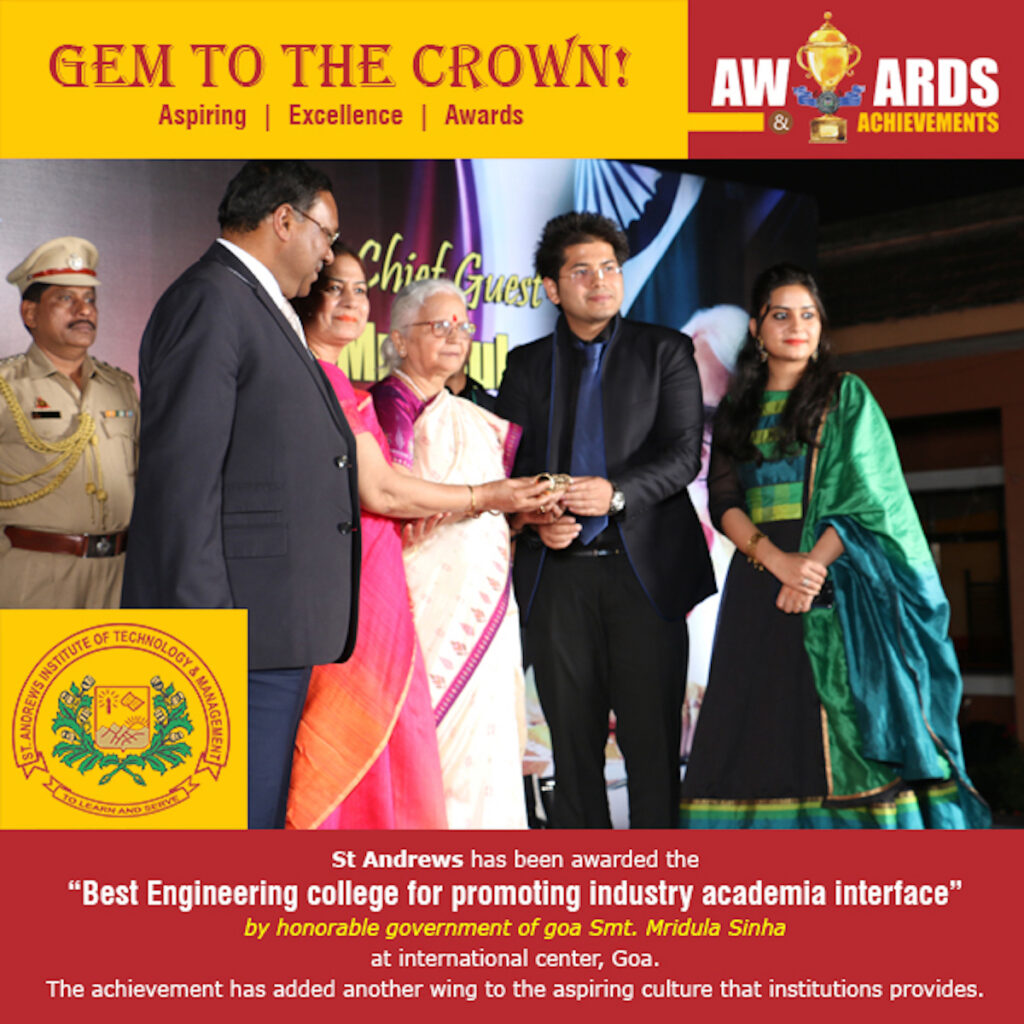
Here are some popular career paths:
Software Developer/Engineer
Designing, developing, and maintaining software applications and systems is a core responsibility of a computer science engineer.
Specializations: Web development, mobile app development, backend/frontend development.
Electronics Engineer
Designing and testing electronic components, devices, and systems.
Specializations: Embedded systems, telecommunications, consumer electronics.
Mechanical Engineer
Designing, manufacturing, and maintaining mechanical systems and equipment.
Specializations: Automotive engineering, aerospace engineering, HVAC systems.
Civil Engineer
Designing, constructing, and maintaining infrastructure projects.
Specializations: Structural engineering, transportation engineering, environmental engineering.
Electrical Engineer
Designing, developing, and testing electrical equipment and systems.
Specializations: Power systems, control systems, renewable energy systems.
IT Consultant/System Analyst
Providing IT solutions and consulting services to businesses.
Specializations: Systems analysis, IT project management, cybersecurity.
Data Scientist/Analyst
Analyzing and interpreting complex data to help organizations make informed decisions.
Specializations: Machine learning, big data analytics, business intelligence.
Telecommunication Engineer
Designing and optimizing communication networks and systems.
Specializations: Network engineering, wireless communication, telecommunication infrastructure.
Environmental Engineer
Addressing environmental issues through engineering solutions.
Specializations: Waste management, water resources management, sustainable development.
Biotechnologist
Applying engineering principles to biological systems and processes.
Specializations: Biomedical engineering, genetic engineering, pharmaceuticals.
Automotive Engineer
Designing and developing vehicles and automotive systems.
Specializations: Vehicle dynamics, automotive electronics, powertrain engineering.
Robotics Engineer
Designing, building, and programming robotic systems and automation solutions.
Specializations: AI and machine learning, industrial automation, robotic surgery.
Average Salary after BTech Degree
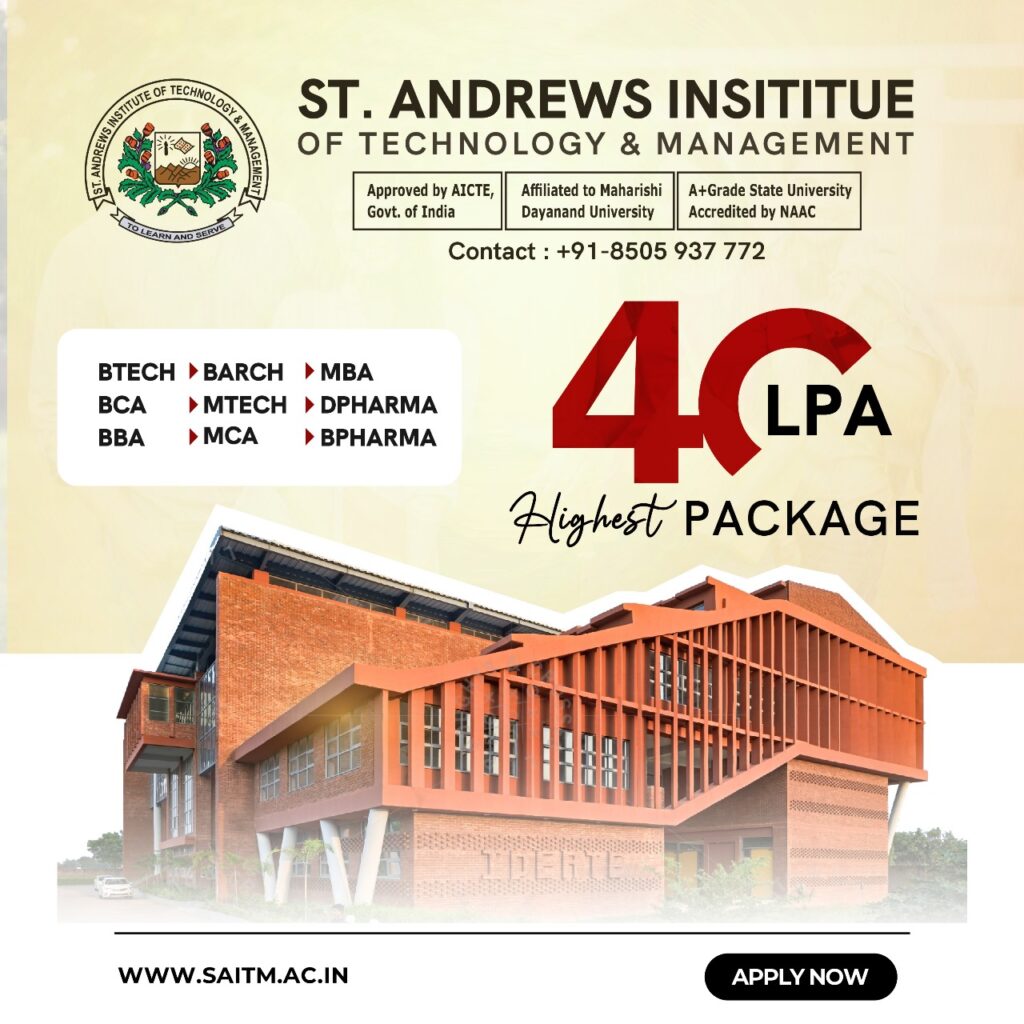
Here is a more detailed breakdown of average salaries after completing a BTech degree in India:
Entry-level Positions (0-2 years of experience)
- Fresh graduates typically start their careers with salaries ranging from ₹3.5 to ₹6 lakhs per annum.
- The exact salary depends on factors such as the college’s reputation, the student’s academic performance, and the demand for skills in their chosen field.
- Industries like IT, software development, and electronics tend to offer competitive starting salaries.
Mid-level Positions (2-5 years of experience)
- Engineers with a few years of experience can expect to earn between ₹6 to ₹12 lakhs per annum.
- This range varies based on the specialization and industry. For instance, roles in emerging technologies like artificial intelligence (AI), data analysis, or cybersecurity often command higher salaries.
- Promotion opportunities and skill development can significantly impact salary growth during this stage.
Senior-level Positions (5+ years of experience)
- Senior engineers, team leads, or managers with extensive experience can earn ₹15 lakhs per annum and above.
- Salaries at this level are influenced by leadership responsibilities, specialized knowledge, and the size and reputation of the employer.
- In sectors such as consulting, finance, or specialized engineering services, senior-level salaries can be considerably higher, sometimes reaching into the range of ₹20 lakhs per annum or more.
Specialized Roles
- Engineers specializing in niche areas like machine learning, robotics, or blockchain technology can command even higher salaries, often exceeding the averages mentioned above.
- Startups and multinational corporations may offer competitive packages to attract top talent in these high-demand fields.
Impact of Location
- Salaries can vary significantly depending on the city or region. Metropolitan areas like Bangalore, Pune, Hyderabad, and Delhi NCR generally offer higher salaries due to a concentration of tech companies and higher living costs.
- Tier-II cities and smaller towns may offer slightly lower salaries but often have a lower cost of living, which can balance out the financial benefits.
Top Recruiters for BTech Graduates
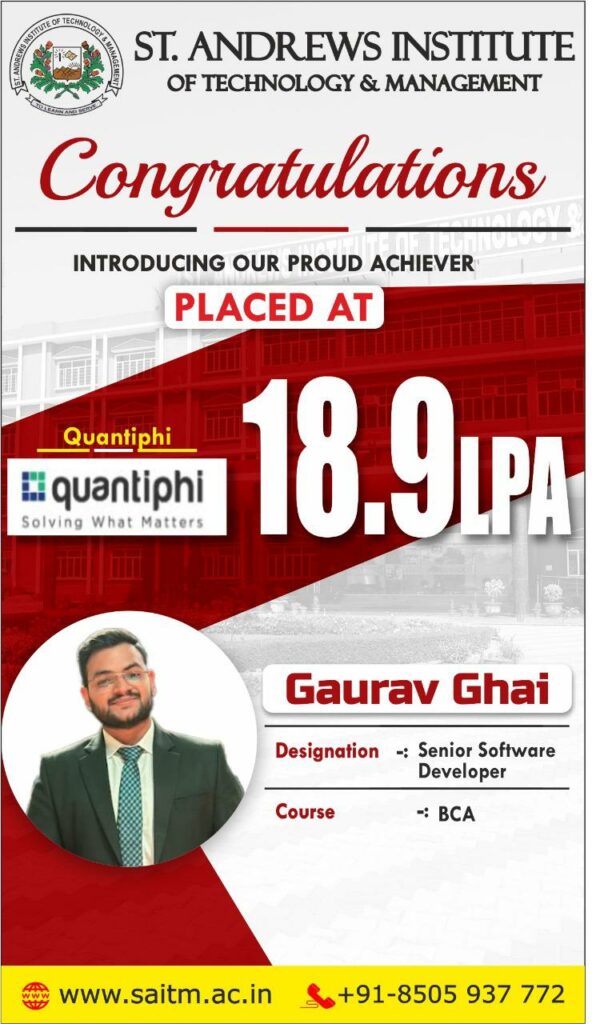
Here are some of the top recruiters for BTech graduates:
IT and Software Companies
Tata Consultancy Services (TCS)
- One of the largest IT services firms globally, TCS recruits a large number of BTech graduates for roles in application development, testing, and IT consulting.
Infosys
- A major player in IT services and consulting, Infosys offers positions in application development, systems engineering, and more.
Wipro
- Known for IT, consulting, and business process services, Wipro hires BTech graduates for various technical roles.
HCL Technologies
- HCL offers roles in application development, IT infrastructure management, and more for engineering graduates.
Tech Mahindra
- Specializes in digital transformation, consulting, and business re-engineering solutions.
Accenture
- A global consulting and professional services company, Accenture recruits for various IT and business consulting roles.
Cognizant
- Provides IT services, including digital, technology, consulting, and operations services.
Multinational Technology Companies
- Offers roles in application development, product management, and data science, among others.
Microsoft
- Recruits for roles in application development, product management, and research.
Amazon
- Hires for roles in application development, operations, and cloud computing (AWS).
Facebook (Meta)
- Recruits for software engineering, product design, and data analysis roles.
Apple
- Offers roles in hardware and software engineering, design, and research.
Consulting and Finance Firms
Deloitte
- Recruits for technology consulting, risk advisory, and IT advisory roles.
PwC
- Offers positions in technology consulting, risk assurance, and data analytics.
Ernst & Young (EY)
- Recruits for technology advisory and consulting roles.
KPMG
- Offers positions in technology consulting and risk management.
Goldman Sachs
- Hires for technology roles in financial services, including software development and data analysis.
Engineering and Manufacturing Companies
Larsen & Toubro (L&T)
- Recruits for civil, electrical, and thermal engineering roles.
Reliance Industries
- Offers roles in engineering, project management, and IT.
Tata Motors
- Hires for mechanical, electrical, and automobile engineering roles.
Siemens
- Recruits for roles in power engineering, automation, and IT.
Mahindra & Mahindra
- Offers positions in automotive engineering, manufacturing, and IT.
Emerging Technology and Startups
Flipkart
- Recruits for roles in application development, data science, and product management.
Ola
- Offers positions in application development, data analysis, and engineering.
Swiggy
- Hires for roles in software engineering, data science, and operations.
Zomato
- Recruits for application development, product management, and data analysis roles.
Paytm
- Offers positions in application development, data science, and product management.
Public Sector Companies
Bharat Heavy Electricals Limited (BHEL)
- Recruits for electrical, mechanical, and public works engineering roles.
Oil and Natural Gas Corporation (ONGC)
- Offers roles in petroleum engineering, chemical engineering, and IT.
Indian Oil Corporation Limited (IOCL)
- Hires for roles in chemical, mechanical, and power engineering.
National Thermal Power Corporation (NTPC)
- Recruits for electrical, mechanical, and structural engineering roles.
Steel Authority of India Limited (SAIL)
- Offers positions in metallurgy, mechanical, and power engineering.
Upcoming Trends in B Tech
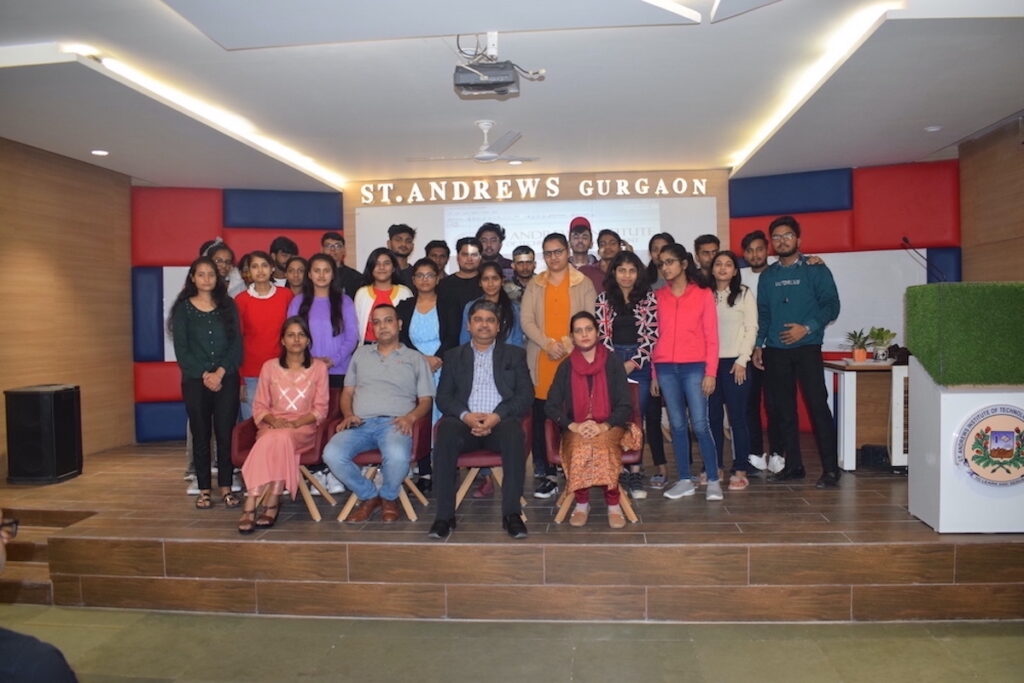
Artificial Intelligence and Machine Learning
Focus: Development of AI algorithms, deep learning, and neural networks.
Applications: Autonomous vehicles, smart assistants, predictive analytics.
Skills Required: Python, R, TensorFlow, PyTorch, data analysis, and mathematics.
Internet of Things (IoT)
Focus: Integration of physical devices with the internet.
Applications: Smart homes, industrial automation, healthcare monitoring.
Skills Required: Embedded systems, networking, data analysis, and cybersecurity.
Cybersecurity
Focus: Protection of networks, systems, and data from cyber attacks.
Applications: Network security, cryptography, ethical hacking.
Skills Required: Knowledge of security protocols, programming, threat analysis, and risk management.
Blockchain Technology
Focus: Decentralized digital ledgers and cryptocurrencies.
Applications: Finance (cryptocurrencies), supply chain management, smart contracts.
Skills Required: Cryptography, programming (Solidity for Ethereum), understanding of distributed systems.
Data Science and Big Data
Focus: Extraction of insights from large datasets.
Applications: Business intelligence, predictive analytics, personalized recommendations.
Skills Required: Statistics, data mining, programming (Python, R), machine learning.
5G Technology
Focus: Next-generation wireless communication technology.
Applications: Enhanced mobile broadband, IoT, remote surgeries.
Skills Required: Telecommunications, networking, signal processing.
Quantum Computing
Focus: Exploiting quantum mechanics for computational advancements.
Applications: Complex simulations, cryptography, optimization problems.
Skills Required: Quantum mechanics, linear algebra, programming (Qiskit, Quipper).
Augmented Reality (AR) and Virtual Reality (VR)
Focus: Enhancing and simulating real-world environments.
Applications: Gaming, education, training simulations.
Skills Required: Graphics programming, 3D modeling, user interface design.
Robotics and Automation
Focus: Design and creation of robots for various applications.
Applications: Manufacturing, healthcare, service industry.
Skills Required: Thermal engineering, electronics, programming, control systems.
Sustainable and Green Technologies
Focus: Development of technologies that reduce environmental impact.
Applications: Renewable energy systems, waste management, energy-efficient buildings.
Skills Required: Environmental science, energy systems, materials science.
Required Skillset for BTech
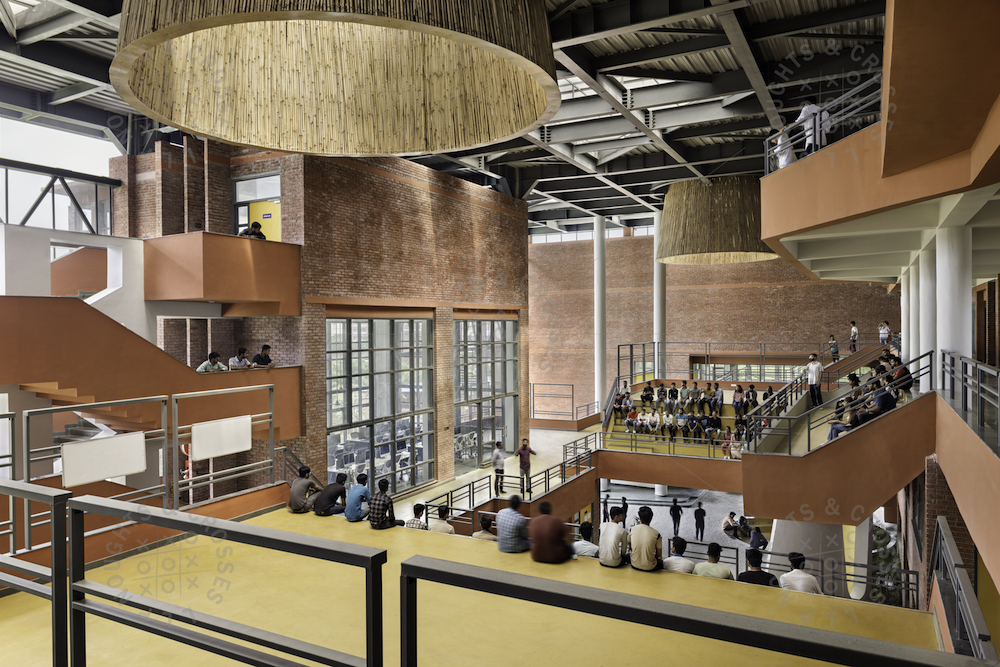
Technical Skills
- Programming languages (C, C++, Java, Python)
- Mathematics (algebra, calculus, statistics)
- Data structures and algorithms
- Basic networking and electronics
- Application development and database management
Analytical and Problem-Solving Skills
- Critical thinking
- Logical reasoning
- Creativity
Soft Skills
- Communication
- Teamwork
- Time management
- Adaptability
Practical Knowledge
- Laboratory experience
- Project management
- Technical writing
Professional Skills
- Ethics and professionalism
- Industry knowledge
- Entrepreneurial skills
Specialized Skills (Based on Branch)
- Specific to fields like Computer Science, Mechanical, Civil, Electrical, and Chemical Engineering
Higher Education Options After B Tech
After completing a Bachelor of Technology (B.Tech), there are several higher education options available depending on your interests and career goals.
Here are some common paths:
Master of Technology (M.Tech)
- Focus: Deepening technical expertise in a specific engineering field.
- Duration: Typically 2 years.
- Benefit: Enhances technical skills and can lead to specialized roles in engineering or research positions.
Master of Business Administration (MBA)
- Focus: Broadening knowledge in business management and administration.
- Duration: Usually 2 years.
- Benefit: Opens up leadership and managerial roles across various industries, including technology, finance, and consulting.
Master of Science (M.Sc)
- Focus: Specializing in science and technology subjects like Data Science, Artificial Intelligence, etc.
- Duration: Generally 2 years.
- Benefit: Suitable for roles in research, analytics, and specialized technology sectors.
Postgraduate Diploma Programs
- Focus: Offering specialized skills in shorter time frames, often with a practical orientation.
- Duration: Varies, typically 1 year.
- Benefit: Quick way to gain additional skills and enhance employability in specific areas.
Doctor of Philosophy (Ph.D.)
- Focus: Conducting deep research in a specific area of interest within engineering or technology.
- Duration: Typically 3-5 years.
- Benefit: Leads to careers in academia, research institutions, and highly specialized industry roles.
Entrepreneurship
- Focus: Starting your own business or startup.
- Benefit: Offers independence and the potential for significant financial rewards, but comes with higher risks.
Professional Certifications
- Focus: Certifications like PMP (Project Management Professional), certifications in cloud platforms (AWS, Azure), or coding languages.
- Benefit: Enhances specific skills and can significantly boost career prospects in niche areas.
Overseas Education
- Focus: Studying abroad to gain international exposure and potentially explore different educational or career opportunities.
- Benefit: Enhances global exposure, potentially offers better research facilities or employment opportunities post-graduation.
FAQs
What is the best career option after BTech in CSE?
After completing a B.Tech in Computer Science Engineering (CSE), the best career options include roles such as software engineer, data scientist, cybersecurity analyst, AI/machine learning engineer, or system architect. Software engineers develop applications and systems, while data scientists analyze and interpret data for insights.
Cybersecurity analysts protect systems from threats, and AI/machine learning engineers innovate in AI technologies. System architects design complex computing systems. Within our B Tech Courses List, you’ll find that each role offers opportunities for growth, innovation, and high-demand skills in a rapidly evolving tech industry, making them top choices for B Tech CSE graduates aiming for impactful careers.
What are the government jobs after BTech?
After completing a B.Tech (Bachelor of Technology), government job opportunities include positions in public sector undertakings (PSUs) like BHEL, ONGC, and NTPC, which recruit engineers for various technical roles through exams like GATE. Engineering services examinations (conducted by UPSC) offer opportunities in organizations like Indian Railways, CPWD, and Defence services.
Other options include roles in government research organizations like ISRO, DRDO, and BARC for scientific and engineering research. Within our B Tech Courses List, you’ll find that state government engineering departments also recruit engineers for roles in infrastructure development. These positions offer stability, good pay scales, and opportunities for professional growth, making them attractive for B.Tech graduates seeking secure and rewarding careers in the public sector.
Which course is best in BTech?
The best course in B.Tech depends on individual interests, career goals, and market demand. However, Computer Science Engineering (CSE) is widely regarded as a top choice due to its broad applications in application development, AI, cyber security, and data analysis. Within our B Tech Courses List, you’ll find that Power Engineering offers opportunities in power systems, electronics, and telecommunications. Thermal Engineering remains crucial in manufacturing, automotive, and aerospace industries, while Structural Engineering is essential for infrastructure development.
Emerging fields like Biotechnology, Robotics, and Environmental Engineering offer specialized skills for niche industries. Within our B Tech Courses List, you’ll find courses that align with personal strengths and aspirations, coupled with industry demand and future growth prospects, to help you choose the “best” course for your career.
Which BTech course is highest salary?
In India, the highest salary for B.Tech (Bachelor of Technology) graduates can vary depending on factors like specialization, employer, location, and individual skills. Generally, Computer Science Engineering (CSE) and Electronics and Communication Engineering (ECE) graduates tend to attract high-paying jobs. Within our B Tech Courses List, you’ll find specializations that are especially lucrative in IT, application development, and telecommunications sectors.
Roles such as software engineers, data scientists, AI specialists, and cybersecurity analysts often command top salaries due to high demand and specialized skills. Additionally, sectors like finance, consulting, and multinational corporations offer lucrative packages for B.Tech graduates. Within our B Tech Courses List, you’ll find programs that equip students with skills in technology, management, and problem-solving, reflecting the dynamic nature of the job market.
What is BTech subjects?
BTech courses typically include core subjects essential for engineering disciplines, such as Mathematics (calculus, algebra, differential equations), Physics (mechanics, thermodynamics, electromagnetism), and Chemistry (basic principles relevant to engineering).
Specialized subjects vary by branch. In Computer Science Engineering (CSE), you’ll find programming, data structures, and algorithms. Electronics and Communication Engineering (ECE) covers electronics, communication systems, and signal processing. Thermal Engineering involves subjects like fluid mechanics, manufacturing processes, and design. Within our B Tech Courses List, you’ll find these and many other specialized subjects tailored to various branches.
The “best” BTech course depends on personal interests, career goals, and industry demand. However, Computer Science Engineering (CSE) is highly favored for its versatility, offering opportunities in application development, AI, cloud computing, cyber security, and data analysis. Electronics and Communication Engineering (ECE) is crucial for telecommunications and electronics industries. Within our B Tech Courses List, you’ll find that Thermal Engineering remains essential in manufacturing and automotive sectors, Structural Engineering is pivotal for infrastructure projects, and Power Engineering is vital for power systems and electronics.

